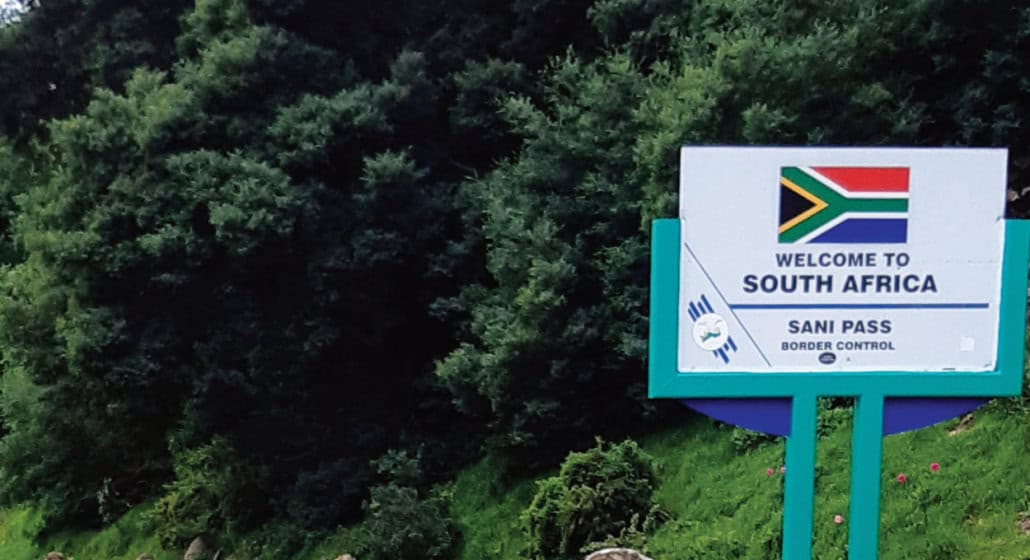Image: Wikimedia Commons
By Tilman Hoppe
First published on the Global Anticorruption Blog
Requiring public official to disclose their assets, income, and other information about their personal finances can be an important tool for curbing corruption. The effectiveness of such a program depends crucially on the ability to verify the disclosures’ accuracy and in particular the ease with which verifiers can determine if an official has hidden assets abroad. A new Treaty greatly facilitates this task. Its ratification should be at the top of national anti-corruption authorities’ to-do list.
Effective 23 August 2024, North Macedonia has ratified the International Treaty on Exchange of Data for the Verification of Asset Declarations. By doing so, North Macedonia has written history. The Treaty is the first and only mechanism for cross-border data exchange for the verification of asset declarations. Three more countries have signed the Treaty and will now have to catch up in ratifying. Other countries are about to sign – any country may join the Treaty, as may the European Union (EU) as a bloc.
The Treaty addresses the following gap – corrupt public officials hide their wealth abroad, but at the same time, bodies verifying asset declarations lack access to data abroad. This is the number one reason cited by verification bodies to explain why they can only unlock a fraction of asset declarations’ potential, because following wealth usually stops at domestic borders. Neither the UNCAC nor any other international treaty address this problem.
A significant advance in international efforts to curb corruption, the Treaty emerged from an unlikely set of circumstances:
First, it was doubtful the Treaty would even become so much as a text agreed upon at expert level. This is because it is a game changer and a real threat for corrupt public officials hiding their wealth abroad. As one practitioner put it during drafting: “Our politicians are all smart enough to hide their wealth abroad.” If this statement is true, these politicians would have little interest in making the Treaty a success. And indeed, while pretending to support it and trying to look good to their peers or the EU, some of the 10 countries initially involved seemed to slow down the process or sometimes even sabotage it.
Second, many big organisations became aware of this need for an international mechanism only recently: the Council of Europe, the OECD, the OSCE, the UNODC. They all shape anti-corruption standards and are custodians of international treaties. Nonetheless, they were apparently too big to make a move on this in the beginning, missing out on an opportunity to contribute to the fight against corruption and to add relevance and visibility for their organisation. Instead, two smaller players stepped up: the Austrian Development Agency and the Regional Anti-Corruption Initiative. Sometimes, big things come in small packages.
Third, the EU has supported the Treaty behind the scenes. It also claims to have the competency to join this Treaty as a bloc. At the same time, the EU is a prime destination for hiding assets: Five of the globally most important financial hubs are in the EU, and its member states are attractive destinations for real estate investments or dual citizenship of corrupt public officials from third countries. It is time that the EU joins the Treaty. This would be a strong boost for the Treaty, for third countries considering membership, and, ultimately, for the effectiveness of asset declaration systems in detecting wealth and interests hidden abroad.
States worldwide should embrace this Treaty. Alternatives are possible but are – other than this Treaty – only theories so far:
- Amending the UNCAC, possibly through a protocol, could be one option. However, several knowledgeable officials believe that the UNODC, which serves as the convention’s guardian, wants to keep the myth alive of the UNCAC being the all-encompassing anti-corruption convention. However, while it is true that the UNCAC was an almost miraculous step over 20 years ago, this myth is wrong. Claims of Article 43 being a viable basis for international data exchange grossly overrate and misinterpret this provision (“Where appropriate and consistent with their domestic legal system, States Parties shall consider assisting each other in investigations of and proceedings in civil and administrative matters relating to corruption”). It is non-binding and far too vague as a legal basis for data transfer.
- A second option could be to amend the Council of Europe’s Civil Law Convention on Corruption through a protocol on asset declarations. However, the Convention has only 34 members, with important stakeholders missing (Canada, Lichtenstein, Portugal, Switzerland, and the US). Therefore, if the Council of Europe would want to put an own instrument on the table, a separate convention on asset declarations would probably reach a wider number of countries.
- The EU could draft and adopt its own international agreement with third parties (Article 216 Treaty on the Functioning of the EU). Alternatively, the EU could initiate and (co)fund a treaty. The EU is probably the most important donor of, for example, Council of Europe reform projects, even more so after Russia ceased to be a member. It is hard to imagine that the Council of Europe would miss out on the win-win of funding and a unique addition to its set of standards on anti-corruption.
From now on, decision-makers must show their cards – either by putting a concrete alternative on the table or by signing and ratifying the Treaty. Doing neither one probably means they feel threatened by the perspective of their asset declaration body having access to data on hidden wealth abroad. North Macedonia carries the day by showing that international data exchange for asset declarations is possible.

